Impact evaluation of the OPD health insurance in Northern Pakistan
- Title
-
Impact evaluation of the OPD health insurance in Northern Pakistan
- Research Institute
-
Hochschule-Bonn-Rhein-Sieg University of Applied Sciences
- Funding period
-
from: 01.03.2023
to: 30.09.2025 - Country and Region
-
Pakistan
- Sector
-
Social Protection
- Development Organisation
-
KfW
- Research Design
-
DiD + matching; RDD
Project description
Short Description
Impact evaluation of the OPD health insurance in Northern Pakistan
Universal health coverage (UHC) is a “high priority target” in the Pakistani national SDG framework. In a move towards UHC, the Department of Health of Khyber Pakhtunkhwa has been implementing the Social Health Protection Initiative (SHPI) since 2015. In this flagship project, the population obtained access to fully subsidised health insurance for inpatient treatment at empanelled hospitals (SHPI-Phase I). However, utilisation of the insurance has remained below initial expectations, limiting its impact on health status and financial protection. The Department of Health will pilot an extension of the insurance to also cover outpatient treatment in hospitals and selected primary health facilities (SHPI-Phase II). Understanding the impact that the planned extension of the programme has on the intended goals of better health and financial protection is a vital step towards fine-tuning the existing programme before it is extended to other sections of the population, which is sure to come.
DEval will fund a rigorous impact evaluation of the outpatient treatment extension of the health insurance.
Context
The study focuses on the Province of Khyber Pakhtunkhwa in the northern part of Pakistan bordering Afghanistan. Khyber Pakhtunkhwa is not only one of the poorest areas of Pakistan, it has also been affected by the Taliban resurgence as well as the recent devastating floods.
Innovation & Method
During the first pilot phase of the scheme, the outpatient insurance will cover the poorest 21% of the population of one district in Khyber Pakhtunkhwa. This group is targeted using the household poverty score assigned by the Benazir Income Support Programme. The core family members of households with low scores will be covered by the scheme. They can obtain services defined in an Essential Package of Health free of charge, including free consultations, image and lab services as well as medicines at empanelled hospitals and selected public primary healthcare providers.
Furthermore, as limited awareness has been shown to prevent the programme from reaching its full potential, an SMS-based awareness campaign will be implemented as an RCT. This way, a low-cost way of overcoming the awareness barrier will be tested which can be easily scaled up by policymakers.
Expected results/Research questions
Against this background, the research project aims to answer the following research questions:
1. Financial protection: What is the effect of the outpatient insurance on out-of-pocket expenditure, and to what extent does the programme protect against catastrophic costs?
2. Healthcare utilisation: What is the effect of the outpatient insurance on utilisation rates, in particular regarding OPD visits, including diagnosis and consultation?
3. Health: What is the effect of the outpatient insurance on self-reported health status?
4. Psychosocial wellbeing: What is the effect of the outpatient insurance on perceived equity in the healthcare system and on self-reported stress associated with visits to outpatient facilities (“peace of mind”)?
5. Awareness: Can a low-cost SMS-based awareness campaign increase utilisation of the insurance, in particular among children, women or the elderly? If yes, does this mediate any effects on the outcomes listed above?

